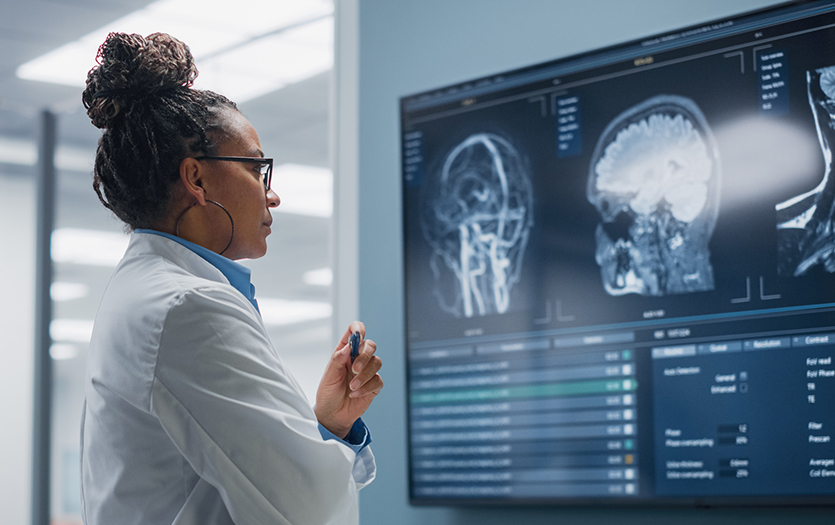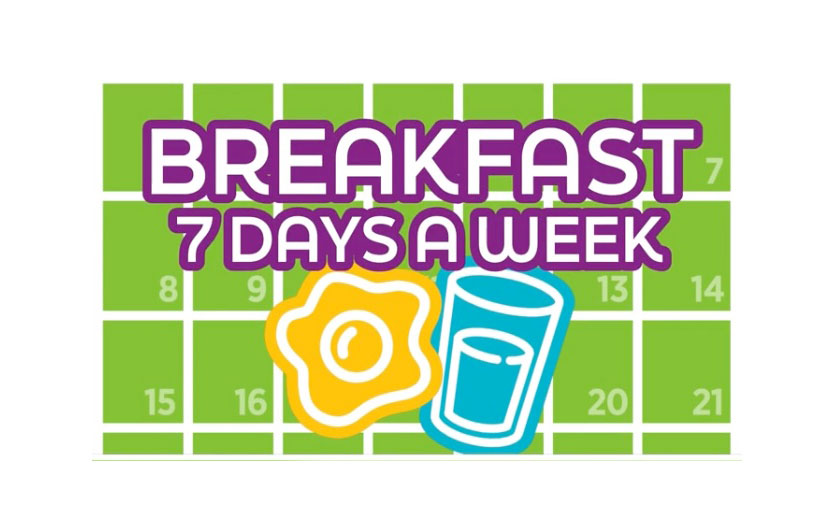
This post was written by Kyle Littell, MD, Physical Medicine and Rehabilitation, Section Chief, Parkview Health.
Did you know that the brain itself cannot feel pain? It detects pain signals that are supplied to it but does not actually experience discomfort. As we enter Brain Injury Awareness Month, it’s crucial to shed light on the complexities of brain health and the importance of understanding conditions like concussions. In this post, we’ll unravel the mystery surrounding concussions including their causes, symptoms and proper treatment.
What is a concussion?
There hasn’t always been a definitive answer to what constitutes a concussion. I have had patients over the years say that they were told they did not have a one because they were not “knocked out” or unconscious but that may not always be true. The American Congress of Rehabilitation Medicine recently published a very detailed description on how to define a concussion. Also known as a mild traumatic brain injury (TBI), occurs by a force to the head or even body that causes the brain to move back and forth within the skull. An individual may experience a short period of confusion, amnesia (forgetting things around the time of the event) or a loss of consciousness for less than 30 minutes. It is important to note that to have a concussion, a person only needs one of these findings.
What are some common causes of concussions in adults?
There are various scenarios that could lead to TBI. Most people might think of sports as a major cause due to the abundance of information available about preventing sports-related concussions. However, the most common causes I see with adults have been car accidents, falls and work-related injuries. Concussions can happen at any time; injuries from a box falling off a shelf to slipping on the ice. Other demographics in which we see TBIs are our military veterans, who are exposed to blast injuries and unfortunately in domestic violence situations. Domestic violence can be a significant problem. Knowing the symptoms of concussion could lead you to ask more questions and potentially help someone who is struggling at home.
What are the signs and symptoms of concussions in adults?
Initially, an individual may have the feeling of being confused or disoriented. Following this, there can be a mixture of cognitive, physical and even emotional symptoms such as:
- Headache
- Cognitive slowing
- Balance issues
- Nausea
- Vision problems
- Sensitivity to light or noise
- Difficulty concentrating
- Memory problems
- Uncharacteristic emotional lability
- Irritability
Other characteristics of TBI can be issues with focusing while at work or school and pain or vision issues that limit screen time or being able to do daily tasks. Not everyone will have all these symptoms but typically will have a few. These symptoms may be at their worst in the first hours to days but will typically begin to improve.
What should an adult do if they suspect concussion?
If a person ever has any loss of consciousness or is older than 65, I recommend being evaluated quickly in a setting like an emergency room where a physician could do a thorough assessment to gauge the need for a CT scan. If a person is having any neurologic changes, such as difficulty speaking or moving, then it also would be good to be assessed quickly to ensure that there is not more than just a concussion.
If someone has mild symptoms like a low-grade headache without other symptoms or seems to be improving quickly then they may consider waiting for a physician visit. However, if symptoms continue then it would be advisable to see a healthcare provider sooner. Parkview has several virtual health options that may be helpful in making quicker recommendations about when and where you should seek care.
Is it true you need to stay awake?
Regarding staying awake, if someone lost consciousness it may be a good idea to assess them every 2-4 hours to make sure there are not any new symptoms. Rest can be restorative as well. It is recommended that those with a concussion have 1-2 days of relative rest. This means they can still do activities like easy housework or reading in short intervals. They should keep their mind active but not to the point where it worsens their symptoms. They shouldn’t avoid doing anything at all as the goal is to gradually return to a regular daily routine.
What are the potential risks?
The most severe complication is called Second Impact Syndrome, a rare syndrome that results in a second concussion shortly after the first without time to fully recover. It can lead to brain swelling and cause severe harm. Again, this is incredibly rare and has only been documented a small number of times over the last few decades.
The other major risk that can be associated with concussion is a brain bleed. This is why it is important to seek medical advice with a concussion, especially in the elderly or if someone loses consciousness. The risk for a brain bleed is low in those who experience a mild TBI, with symptoms such as feeling dazed or slightly confused. The risk is higher, however, for those who suffer significant neurological changes. The vast majority of people with a concussion don’t require much intervention and should see symptoms improve in just a few hours or days. Generally, people can go back to school, work and even sports after a few days.
Are there any long-term threats of concussion in adults?
One complication that people may be familiar with is Chronic Traumatic Encephalopathy or CTE. This condition is comparable to a form of dementia that can occur years after repeated brain injuries. That is why decision-makers for sports like football and soccer are trying to find ways to reduce instances of concussions. We do not know how many blows it takes, but it does not seem that one or two incidents causes CTE.
There are a minority of people that can have a delayed recovery or persistent symptoms such as the ones mentioned earlier, but many of them show improvement with time and the correct treatment plan. This might include physical therapy, speech therapy, occupational therapy, psychology, vision therapy, optometrists and neuropsychologists.
A crucial factor to recovery is prioritizing the individual's emotional and mental health aspects. Research has shown that depression and anxiety symptoms can worsen following a TBI or even lead to anxiety or depression. Having the right team is essential in recovery for those with longer lasting symptoms.
Parkview Health has Physical Medicine & Rehabilitation Providers located throughout northeast Indiana and northwest Ohio. If you are interested in establishing care with one of our providers, call our Access Center 24/7 at 206-785-2631 and view provider locations here.
If you have questions about your neurological health or need expert care for a brain injury, the Parkview Neurology team can help. Ask your primary care physician if a referral to a neurologist would be appropriate or call our offices at 260-217-4379.




